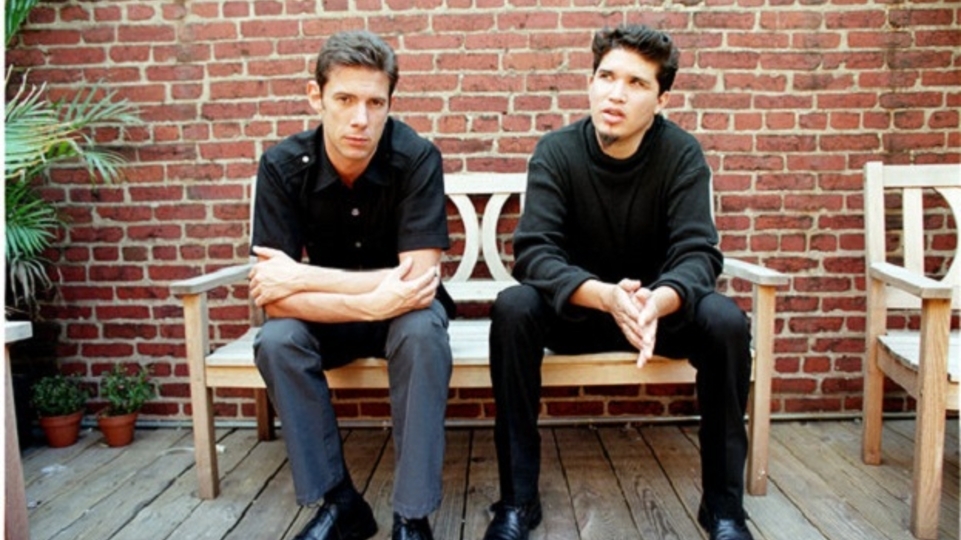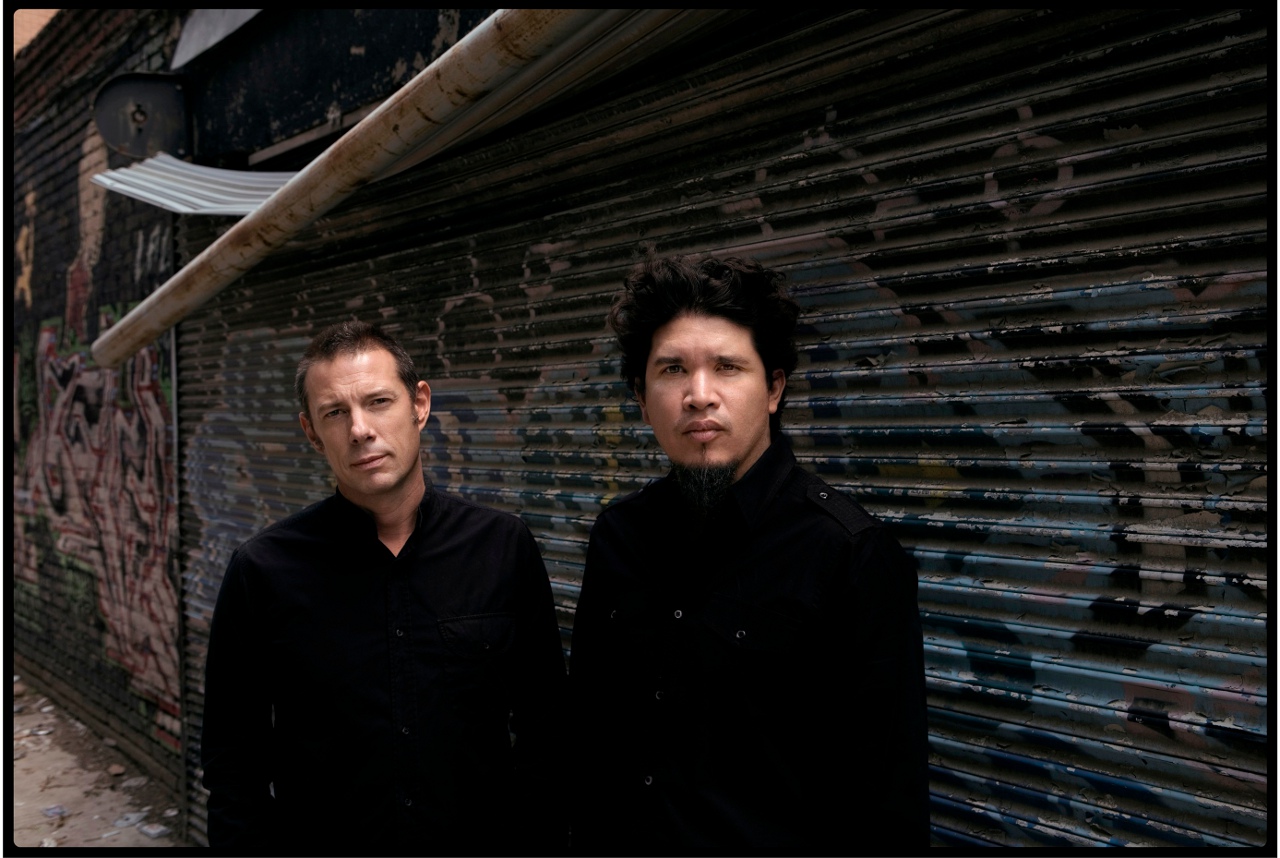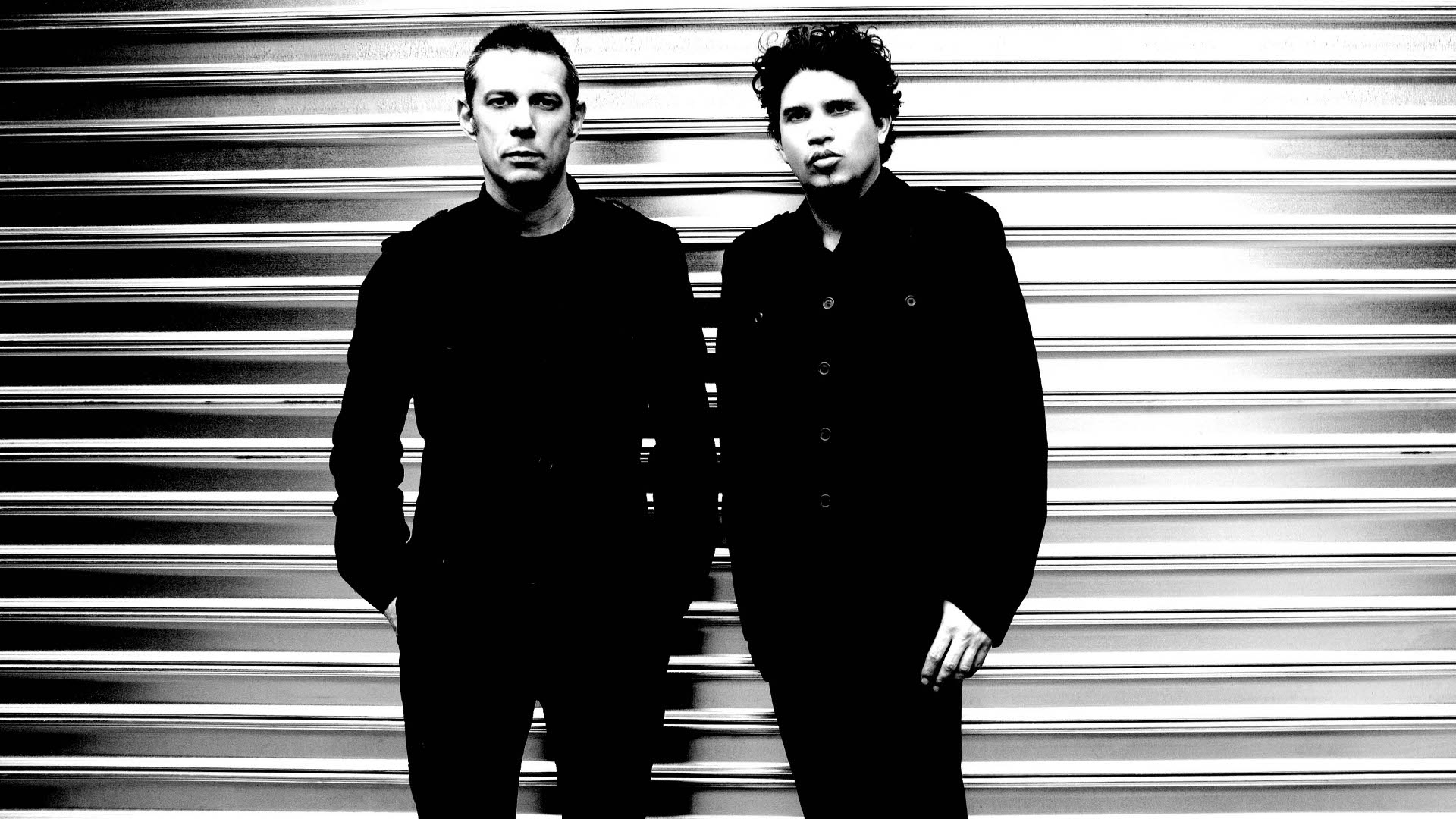THIEVERY CORPORATION: MUSIC & MELANCHOLIA
Thievery Corporation return with ‘Saudade,’ an ode to music's ability to wring beauty from sadness...

Thievery Corporation resides on opposite sides of the North American continent. The duo’s Eric Hilton remains in its original home of Washington DC while the other half, Rob Garza, divides his time between San Francisco and Playa del Carmen in Mexico, where he is a partner in the venues La Santanera (for the last 10 years) and Canibal Royal (for the last four years). Hilton and Garza may or may not be pining for each other, but their eighth album, Saudade, is shot through with melancholy, nostalgia and longing, some of the sentiments suggested by the title.
“The word comes fromfado music in Portugal, focused around sailors and women longing for their man to come back from sea,” explains Hilton when we catch up to dissect the new record. “It’s that feeling when you’re not happy, you’re not sad, you’re in the cracks of emotions in between. Having felt a little bit of saudade from time to time is part of the essence of living. Saudadeis the resignation to the suffering in life, but also the beauty within the suffering.”
BOSSA NOVA
It is fado’s successor, bossa nova, that drives Thievery Corporation’s Saudade, and also what connected Hilton and Garza over two decades ago. Hilton stumbled across Stan Getz & Luz Bonfa’s Jazz Samba Encore! while milling around a used record store and was instantly hooked. Garza found an Antonio Carlos Jobim (the godfather of bossa nova) cassette at Tower Records, which led to him uncovering those sounds through other old records. That was some 30 years ago.
“At that point bossa nova was already elevator music, or easy listening, in our culture,” says Garza. “I went to Brazil back then and I remember some guys saying to me, ‘This music is so old and it’s crazy that you found these sounds, mined through the history and combined it with electronic music.’”
Over the course of numerous releases the duo have incorporated any and all genres that appealed to them into their music, stirring the sound into a gumbo of world styles, all the while keeping a bossa nova through-thread. Now, with Saudade, they return to what brought them together in the first place, zoning in on shuffling rhythms, sensual movements, softly rounded beats and, most of all, melancholic vocals.
“Electronic music is where we started,” says Garza. “But we’re fans of jazz, dub, Indian music, ‘60s cinema soundtracks. We kept exploring and, in the end, we’re not so much an electronic act. There are electronic elements in our music, but there’s a lot for a wide range of people to grab on to.”

ONE STYLE
“[On Saudade] we tried to keep ourselves on one terrain” says Hilton. “We might have had a good reggae song, or a great uptempo electronic song, but we left those off because we wanted this record to sound less like an eclectic compilation, which our albums can sound like because we touch on so many different styles. Usually it’s hard for us to make a record because we like to jump around to different styles. It was fun to do a record in one style. It’s like acting, not taking off the wardrobe and keeping the accent to stay in character. We had to force ourselves to stay in that mode of the saudade experience.”
Helping Hilton and Garza stay in character are Thievery mainstay vocalists LouLou Ghelichkhani, Natalia Clavier, Nouvelle Vague’s Karina Zeviani, Bitter:Sweet’s Shana Halligan and newcomer, Elin Melgarejo. These ladies deliver the melancholy in many tongues: English, French, Spanish and Italian. Whether or not the words are comprehensible, the sentiment is clear. Case in point, the shivery “No More Disguise,” a combination of animated Disney film and ‘60s lounge sounds and the hisses and organ sweeps of “Depth Of My Soul,” harkening Portishead’s less spooky moments. Also keeping in character are the musicians, including Federico Aubele, Roberto Santos and Michael Lowery, whose inherent understanding of saudade brings an authenticity to the instrumentation that would do Jobim proud.
“It doesn’t have to be Brazilian to create that feeling,” says Hilton. “There’s a great Smiths song called 'There Is A Light that Never Goes out,' that song is pure suadade. New Order, Joy Division, the Cure, all have a lot of saudade in their music. There are hand-in-the-air songs, and then there are songs that take you to another place, a mellow, introspective place and saudadeis in that realm.”
Staying away from hands-in-the-air material, Hilton has a Saturday night residency at a Vietnamese restaurant-cum-bar with a DJ booth called Den Of Thieves in DC. Here, he plays the early set of the evening, with no pressure to get the crowd moving, warming up the atmosphere for the more energetic music of his co-residents, whom he says are the four of the best DJs in the city.
“I kind of hate dance music,” admits Hilton. “It’s not musical enough for me most of the time. Especially now, it’s a frequency and about how low the sub can go and what kind of digital trickery you can do. I like lyrics and melody and horns. It’s hard for me to find stuff I want to DJ. I can listen to tens of thousands of songs and enjoy them, but in terms of playing out, it’s tough because I don’t want to play purely instrumental music, and dance music is not interesting enough.”
In contrast, Garza has wholly embraced his electronic past, specifically his start in that world as a techno producer, playing nu-disco, deep house and tech-house. “I love all music,” he says. “I grew up through hardcore, but I also studied classical music theory and played in a jazz ensemble. There’s a lot I don’t care for, a lot of mainstream popular EDM is unbearable in my opinion, but I also think people are being very creative with electronic music.”

ESL MUSIC
Even with heightened creativity in electronic music, Thievery Corporation has scaled back its label, ESL Music, through which they have released all their work. ESL Music has been a conduit for Thievery Corporation to retain its creative freedom and artistic control, a luxury most musicians can’t afford, and one ESL can’t afford for anyone except Thievery anymore.
“The value of recorded music has plummeted,” says Garza. “We shut down our record label in terms of working with other artists because it’s like squeezing a dry lemon. You’re doing a lot of work and nobody’s buying the music anyway. The sale of music isn’t as big as when we started so it allows a lot of people to handle it themselves, but the ability for artists to make a living from their art is more difficult.”
The two, who are known for being politically vocal opinions, have pulled back from raising social consciousness on Saudade. “Not enough people are aware of issues around the world to be interested in listening to alternative opinions,” says Hilton. “One of the biggest impediments to free thinking is the oppression of an individual in an organization. You start saying things that sound controversial – you’re already going to become ostracized within your group. Artists don’t police one another. They listen and talk and try to reason.”
“I don’t know what artists are talking about when everything sounds like cheesy workout music,” says Garza. “We are a little baked from the EDM world. Hopefully after awhile people will be fatigued and start searching the real roots of electronic music, understanding the subtleties between different forms, and be able to be part of other musical things. Saudade is a little break from all that.”
words: LILY MOAYERI